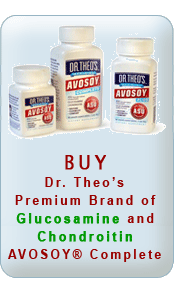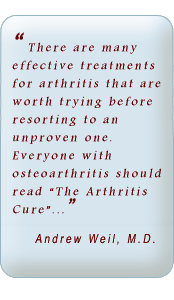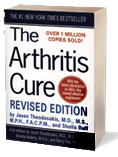Medical Evidence
Efficacy And Safety Of Intramuscular
Glucosamine Sulfate In Osteoarthritis Of The Knee. A Randomised,
Placebo-Controlled, Double-Blind Study A. Reichelta.
K. K. Forsterc M. Fischerb. L. C. Rovatic and I. Setnikarc, The
University Clinic of Orthopedicsa. Freiburg/Brsg. (Fed. Rep. of
Germany). Institute for Numerical Statistics GmbHb Cologne (Fed.
Rep. of Germany), and Department of Clinical Pharmacology. Rotta
Research Laboratoriumc, Monza, Milan (Italy)
Abstract: Glucosamine sulfate
(Dona, CAS 29031-19-4) is a drug used in the treatment of osteoarthritis.
When orally given, it is more effective than placebo and at least
as effective as non-steroidal anti-inflammatory drugs in relieving
osteoarthritis symptoms. The aim of this multicentre, randomised,
placebo-controlled, double-blind, parallel-group study was to
assess the efficacy and safety of glucosamine sulfate intramuscularly
given on the same parameters. 155 out-patients with knee osteoarthritis
(Lequesne's criteria), radiological stage between I and III, Lequesne's
severity index of at least 4 points and symptoms for at least
6 months, were treated with i.m. glucosamine sulfate (or placebo)
400 mg twice a week for 6 weeks. Clinic visits were performed
at enrollment, after a 2-week baseline, at weekly intervals during
treatment and 2 weeks after drug discontinuation. Responders to
treatment were considered those patients with a reduction of at
least 3 points in the Lequesne index, together with a positive
overall judgement by the investigator. The Lequesne index was
slightly over 10 points in average in both groups at the beginning
of treatment. A significant decrease in the index was observed
for glucosamine compared to placebo (3.3 vs. 2.0 points in average,
respectively; p < 0.05, Student's t-test). The responder rate
in the evaluable patients was 55% with glucosamine (n = 73) and
only 33% (n = 69) with placebo (p = 0.012, Fisher's Exact Test).
According to the intention-to-treat approach, considering also
drop-outs, these proportions were 51% vs. 30% (p = 0.015). Both
local and systemic tolerability of i.m. glucosamine sulfate were
good and without difference in comparison with placebo.
Source: Arzneimittel-Forschung.
44(1):75-80, 1994 Jan.
Dr. Theo's Comments: This
is another well-designed study to show the benefit of glucosamine
versus placebo. The intramuscular use of glucosamine is desirable
only in the veterinary world, however, since know that glucosamine
is effective and well-tolerated orally.




